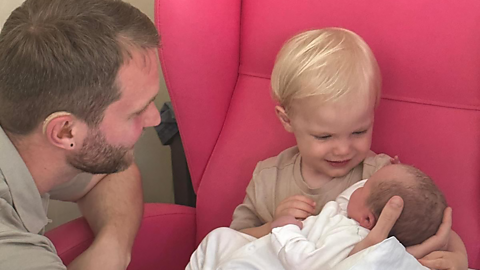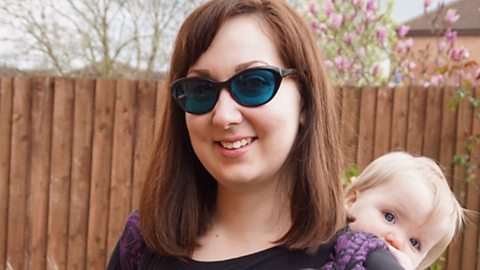What is it like raising a toddler outside your home country, learning more than one language?
Seetal Savla moved to Berlin with her husband Neil before their daughter Meghna - now two years old - was born.
Between English and German, Meghna is also learning French and the language of her great-grandparents, Gujarati. How does this affect family life?
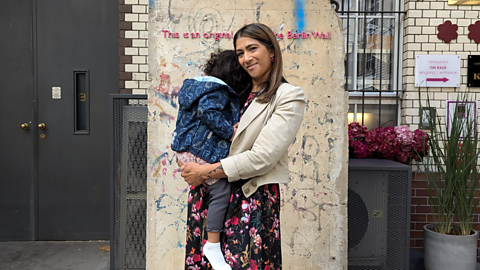
Raising a child in Berlin was never part of our plan.
My husband Neil, a born and raised North Londoner, had never seriously entertained having children anywhere else. Although I had dreamed of living abroad, having spent a few years in Paris and Montreal, it made sense to settle down in the country where we had the most support.
But becoming parents was much harder than we had ever imagined. Following an early pregnancy loss, we chalked up one failed IVF cycle after another, each one leaving us increasingly exhausted and hopeless. Our lives felt stagnant on every level.
So, when Neil had an opportunity to work in Berlin, we grabbed it with both hands. It was winter 2020 and the city was about to go into a hard lockdown, but we didn’t care; we desperately needed a change of scenery.
If we hated it, we could always go back home, right?
Four years later, we are still living in the German capital. The biggest surprise, though, is that we did have a baby. After all the failed fertility treatment, our daughter Meghna somehow came along without a helping hand.
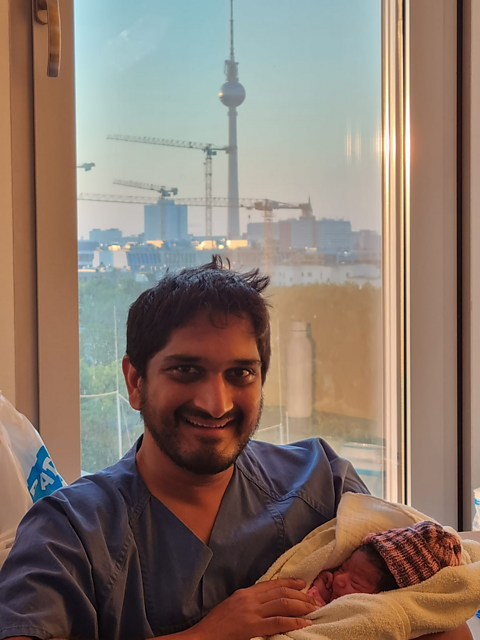
Raising a multilingual child
Being pregnant and giving birth in a foreign country is challenging in so many ways, especially when you don’t speak the language.
Thankfully in Berlin, most people speak English to varying degrees, which made life a lot less stressful.
However, I’m passionate about languages and have always felt ashamed that I couldn’t form a proper sentence in German. I had started a basic course long before my due date, but progress is slow when you are learning remotely for a handful of a hours per week.
As much as I’d have loved to have given my daughter a headstart in learning German, instead I decided to speak to Meghna in French, which I’m much stronger at. Hopefully she will love it like I do!
Neil spoke to her in English, while she learnt German at nursery.
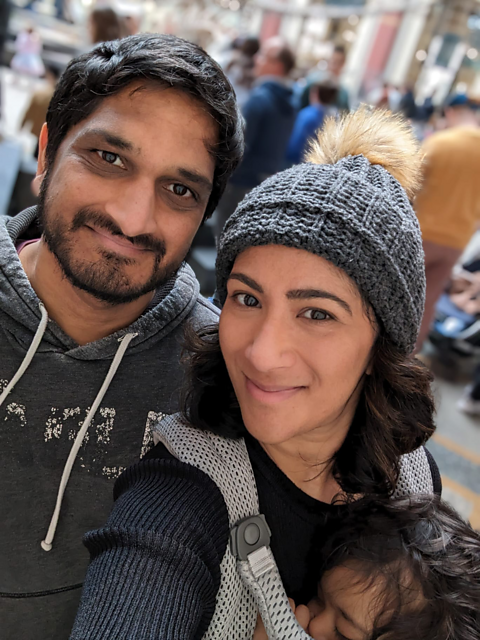
The importance of Gujarati
When Neil and I were growing up, we had to speak Gujarati with our grandparents because some of them didn’t understand English.
I wouldn’t say that I enjoyed speaking it, but I’m grateful that it allowed me to hear my grandma’s stories in her own vivid words, not to mention her sage advice.
We are keen for our daughter to have a similar experience and feel a connection to her wider family and ancestors.
However, this raised even more questions for us. Would trying to teach Meghna four languages from birth break her rapidly developing brain?
Since neither of us can speak Gujarati without making a million mistakes, how could we set her up for success in the absence of our families?
If we were living in London, we would have nothing to worry about. She would have heard the language from Day One thanks to her grandparents and great-grandparents. She may have even learned to read and write it at Gujarati school.
Learning Gujarati is going to prove difficult for her, so just how necessary is this language when our families all speak fluent English?
Despite this question cropping up time and again, we’re keen to keep Gujarati as part of Meghna’s daily life.
During our last trip to London, my mother-in-law taught her a simple nursery rhyme that we now practise on repeat - when she is unsure of the pronunciation, she watches and listens to me intently, determined to get it right.
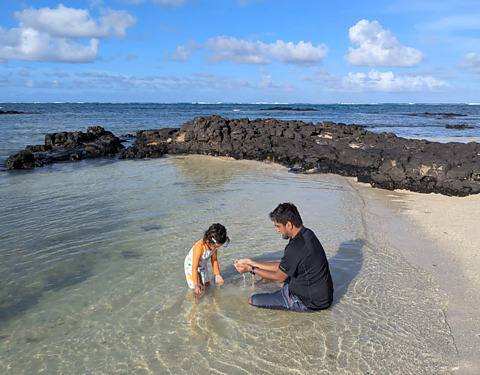
Separation from family culture
Not having family around also means that we miss out on celebrating the major festivals in our culture, such as Diwali and Navratri.
Neil and I may not be religious (he is atheist, and I am agnostic), but we still cherish marking these occasions with our loved ones. We would love for our daughter to learn the stories behind all the well-known gods and goddesses because each one demonstrates useful universal morals, like being brave in the face of adversity.
Yes, we could swot up and teach her, but it’s not the same as absorbing them naturally through play and chat.
Another solution would be to attend events in Berlin. With a growing Indian population, the community is becoming stronger.
That said, we have very few Indian friends here and we rarely see them, unfortunately. Celebrating these festivals as a threesome is therefore a very different experience to the one we would have in the UK.
Now that Meghna is almost three, we are considering heading home for Diwali instead of Christmas for her to be surrounded by family and more immersed in her cultural roots. At the same time, December in Berlin rocks because there are so many winter markets to enjoy!
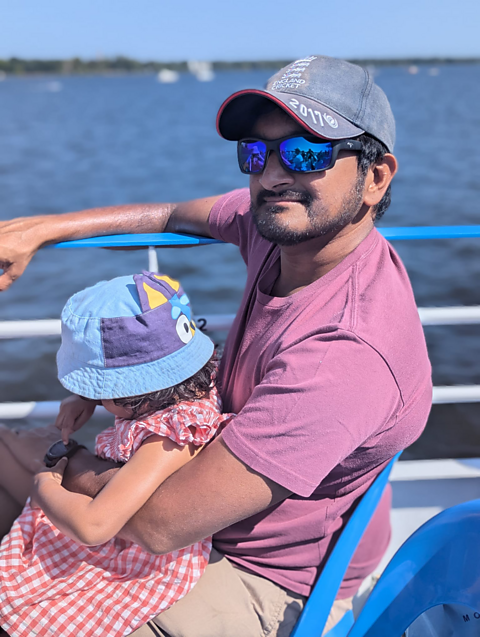
The positives of life in Germany
Meghna’s early years won’t feature lessons in Gujarati, classical dance or music, but rather than looking at what she is missing out on, I prefer to focus on what she is gaining.
The main advantage is being exposed to a major European language that neither of her parents can speak properly. Okay, she may not need it once we eventually leave Berlin, but it might come in handy later in life to unlock exciting personal or professional opportunities.
Another aspect of our Berlin life that I love is how Germans champion an outdoor lifestyle.
Unless it is raining heavily or temperatures dip below zero, you will see kids zooming around one of the many playgrounds in the city. Almost all of these have wooden structures built on sand and messy play is hugely encouraged.
Children are often seen riding bikes or scooters or joining their parents while they run errands. As the famous saying goes, “There is no such thing as bad weather, only bad clothing”!
This appreciation of nature has rubbed off on me: I walked to all my pregnancy appointments until hour-long journeys became impossible, hobbled outside as soon as I could post-delivery and then continued to walk for miles with my daughter strapped to my chest in a sling during her first year.
To this day, being outdoors soothes and fascinates her.
Finally, I am extremely grateful for Berlin’s fully-funded nurseries. Apart from a small fee to cover monthly meals and outings, parents don’t have to pay for daycare. Without family support and with few part-time roles available, life here would have been very difficult without them.
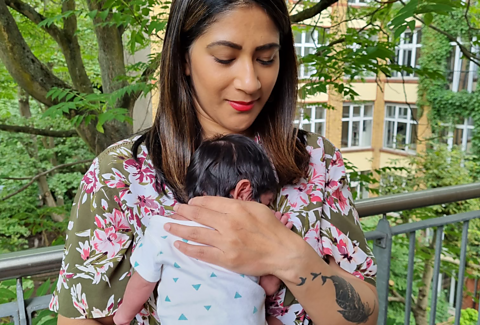
A multicultural identity?
Our environment shapes who we become. Neil and I both grew up with strong influences from our Indian culture, but do we see ourselves as exclusively Indian? I can’t speak for him, but I certainly don’t.
I grew up in a part of Leicester that wasn’t heavily populated by Indians at the time, so despite my extracurricular cultural activities, I didn’t identify as 100% Indian. I felt like I lived a dual life: one as a Brit and another as an Indian.
So, being born and raised in Berlin by British Asian parents, what will Meghna’s internal and external identity be? Time will tell.

